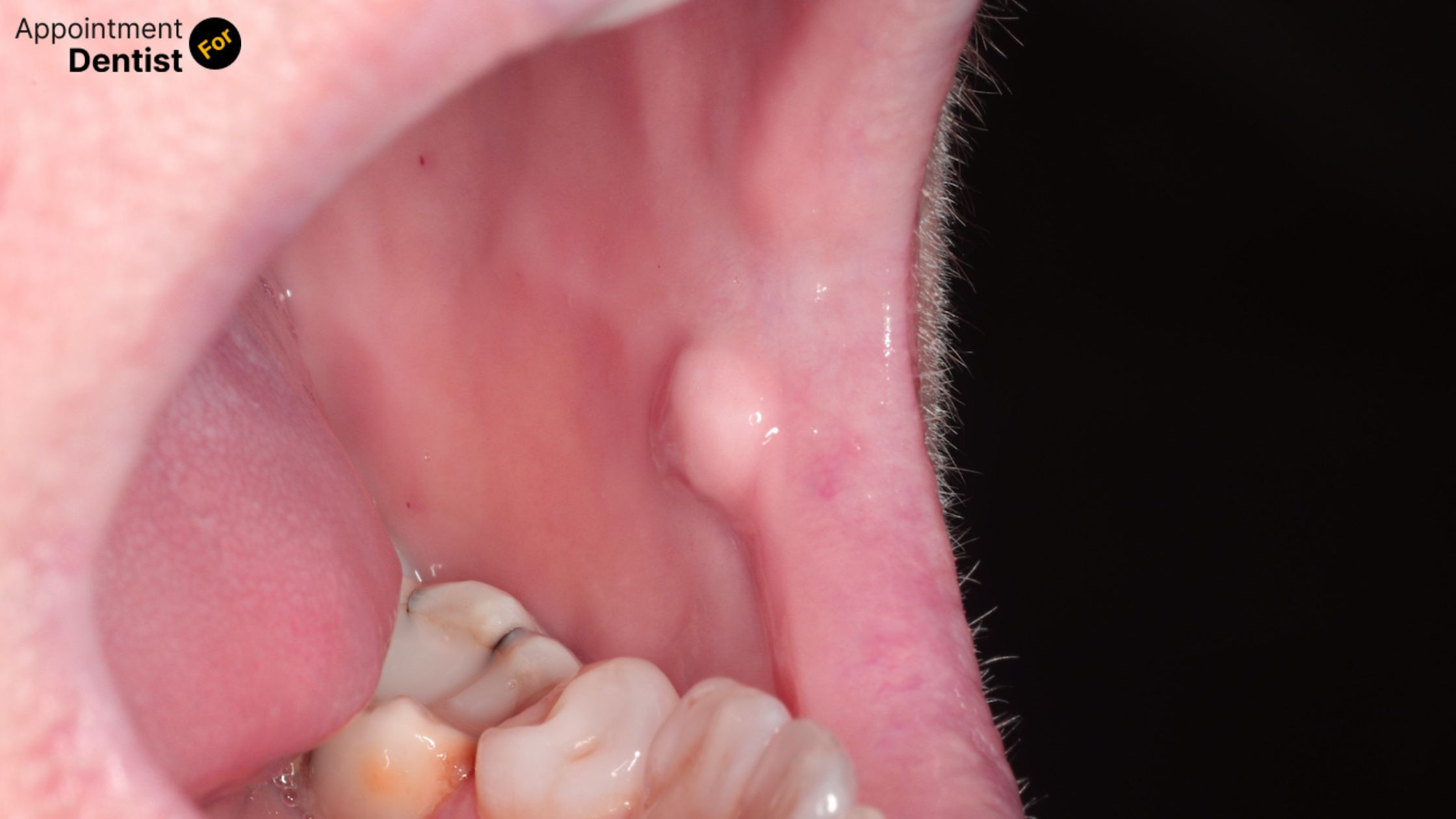Understanding and Treating Oral Fibroma
Posted on August 06, 2024 by Admin

Understanding and Treating Oral Fibroma
An oral fibroma is a benign tumor that may form in the mouth. It is characterized by a small, firm bump on the gums, tongue, or inside the cheeks. Much as oral fibromas are normally non-malignant and harmless, they may still cause pain, interfere with dental functioning, and their appearance might be a concern at times.
What is an Oral Fibroma?
Oral fibroma refers to the growth of fibrous tissue in the oral cavity, usually as a reaction to chronic irritation or traumatic injury. It is composed of dense connective tissue that may measure a few millimeters to some centimeters in diameter. Oral fibromas most frequently affect people in adulthood but can occur at any age.
Causes of Oral Fibroma
Although the exact cause of oral fibromas is not clear, there are a variety of factors thought to be contributory in development. These include:
- Chronic Irritation: The continuous irritation from dental appliances, rough edges of teeth, or poor-fitting dentures may cause fibromas.
- Trauma: Trauma to the tissues in the mouth may result in the inward growth of the fibrous tissue due to biting the inside of the cheek or tongue.
- Hormonal Changes: Hormonal changes, particularly during pregnancy, could affect the development of oral fibromas.
- Genetic Predisposition: Some patients may have a genetic background leading to the development of fibrous lesions in the oral cavity.
Also Read: Things You Should Know About Dental Insurance
Signs and Symptoms of Oral Fibroma
The oral fibroma is not very painful or symptomatic. However, some patients may experience the following symptoms:
- A painless, smooth, firm swelling in the mouth
- Discomfort or irritation, especially if the fibroma is abutting a dental appliance or a rough tooth edge
- Difficulty chewing or speaking, depending on its size and location
It should be noted here that though oral fibromas are benign, any new growth or unusual appearance in the mouth should be investigated by the dentist to rule out other disorders.

Diagnosis of Oral Fibroma
Diagnosis of oral fibroma usually requires a good clinical examination by a dentist or an oral surgeon. Sometimes, this may include a biopsy to confirm diagnosis and rule out malignancy. Imaging studies may also be indicated to probe the extent of the fibroma with its relation to surrounding tissues.
Treatment Options for Oral Fibroma
In most cases, treatment for oral fibroma is not necessary unless the growth is causing discomfort, interfering with oral function, or for cosmetic reasons. The following are majorly the treatment options:
-
Observation
In this case, if the oral fibroma is small and asymptomatic, the dentist may opt for watching and waiting. Regular checkups will ensure that the growth is monitored for any changes.
-
Surgical Removal
In larger or symptomatic oral fibromas, surgical excision is done. It is usually carried out under local anesthesia, whereby the fibroma is excised together with a small rim of surrounding tissue to prevent recurrence. Recovery time is relatively short, and most patients return to normal activities within a few days.
-
Treatment of Underlying Causes
In cases where the oral fibroma is related to chronic irritation or trauma, treatment must be directed at eliminating these causative factors. These include the adjustment of ill-fitting dental appliances, smoothing sharp teeth, and improving oral hygiene measures.
Must Read: 7 Mistakes to Avoid When Choosing a Dental Plan
Conclusion
Comprehending oral fibroma is important in maintaining oral health and handling any issues related to growths in the mouth. While such benign tumors usually do not pose much threat to health, they can cause discomfort and affect oral function. If you happen to feel any abnormal lumps or mouth changes, look into a dental professional for an accurate diagnosis and appropriate management. Staying ahead on knowledge regarding oral health will keep you ahead with a healthy, comfortable smile.
Faqs
-
1. Are oral fibromas cancerous?
No, oral fibromas are not cancerous. They represent benign tumors. However, any new growth in the mouth should be looked at by a dental professional to rule out other conditions.
-
2. What is the etiology of the development of oral fibromas?
The development of oral fibromas may be caused by chronic irritation, trauma, hormonal changes, or even genetic predisposition. They present in reaction to chronic irritation in the oral cavity usually.
-
3. How are oral fibromas diagnosed?
Diagnosis is usually made by clinical examination by a dentist or oral surgeon. A biopsy may be conducted to confirm the diagnosis and rule out other entities.
-
4. Are oral fibromas treated?
Treatment is not always indicated, especially when the fibroma is small and asymptomatic. However, larger or symptomatic fibroids may be removed surgically.
-
5. Do oral fibromas recur?
While surgical removal is largely successful, there is a need to address the underlying causes of irritation to ensure there are no recurrences. Regular dental check-ups will also monitor any new growths.
Recent Post
- The Importance of Oral Health Education for Children
- How to Choose the Right Orthodontic Treatment for Adults
- The Link Between Oral Health and Stroke Risk
- How to Address and Prevent Gum Recession
- Innovations in Dental Anesthesia: Pain-Free Procedures
- The Role of Saliva in Oral Health: Functions and Disorders
- Exploring Holistic Dentistry: What You Need to Know
- How Oral Health Affects Your Immune System
- The Benefits of Using Dental Probiotics
- Oral Health and Pregnancy: Myths and Facts